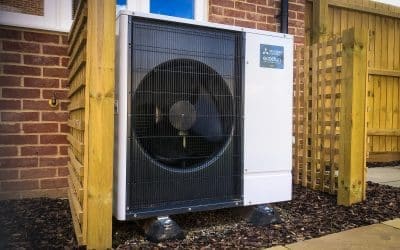With the global movement of being more green, the installation of renewable heating systems is on the rise. This has given biomass installation a boost which in turn has bought different types of biomass fuels to our attention. You now have the option to choose the type of biomass fuel you wish to use in your boiler. Of course, various factors will come into play before you make your decision.
In this piece, we will discuss the types of biomass fuels available along with their cost to help make your decision easier.
But first, we need to understand what biomass fuel is?
What is Biomass Fuel?
The biological material obtained from plants to produce heat when burnt is nothing but biomass fuel. For this, plants are fed into a biomass boiler to produce energy for heating and to cater to hot water requirements.
The Renewable Nature of Biomass Fuels
The most significant aspect of biomass fuels is its renewable and highly sustainable nature. In fact, the UK government has designed the RHI program to encourage more people to install renewable heating systems.
When biomass fuels are burnt, the amount of carbon dioxide they emit is the same that they absorbed as plants and trees.
On the basis of this logic, you could argue that gas and coal are also renewable considering they were once biological materials. However, here the aspect of timescale comes into play. It takes a million years for coal to form. On the other hand in only a couple of years, you can produce biomass fuels ready to be used.
Different Types of Biomass Fuels
Wood Chips
Wood chips are the least expensive type of biomass fuel at around 2.9p/kWh (kilowatt-hour) of energy produced. It is ideal for fully and semi-automated boilers (50 kW) of medium and large size. If you opt for uniform wood chips, these will cost slightly more. Typically, wood chips are really dry with just 30% of moisture content. But, because of the high amount of moisture in the wood, it is best to use it as quickly as possible.
If stored for a long time, wood chips start decaying. This causes fungal growth which isn’t good when inhaled. So it is best to store them in an open space with sufficient airflow to speed up the drying process and keeping any microbial activity at bay.
Wood Pellets
Wood pellets cost comparatively more than wood chips at around 4.2/kWh of heat produced. These are made using waste and excess matter resulting from wood manufacturing. Its density makes it extremely efficient and compact not to mention the uniformity in size makes pellets most suitable for fully automated systems.
The biomass hoppers used to store wood pellets has a dust and outgas present making it highly flammable and toxic. So ensure that there are no open electrics anywhere near the hopper and if any person enters the stores then they should do so under strict supervision.
Logs
Logs are preferable if you have access to plenty of wood resourced with sufficient space to store them. If you don’t have access to wood, using logs as a biomass fuel can turn out to be a pretty expensive affair. Moreover, logs have to be aired out in a dry place for a year at least to reduce its high moisture content. Maximum efficiency can be achieved only if the log is dried well. Additionally, you can also use sawdust and wood bark as biomass fuels.
Elephant Grass or Miscanthus
This plant requires very low maintenance and can it be pelleted or chopped to be used in boiler systems that require wood pellets and chips. In the UK, Miscanthus has become a rather important source of biomass fuel as farmers are using low-grade lands to plant large crops.
Check with the manufacturers of your boiler system to ensure that these different types of biomass fuels work with your system. In any case, we can help you choose not only the system but also the perfect biomass fuel bespoke to you.
Get your free quick quote here.
Biomass Fuel Cost
-
- Wood Chips – 2.9p/kWh and £100 per tonne
- Wood Pellets – 4.2p/kWh and £200 per tonne
- Logs – £150 per tonne
- Miscanthus Pellets – £240 per tonne
Note: Fuel costs mentioned here can differ depending on your geographical location, suppliers and its availability.
To know more about biomass installation and fuels, get in touch with us today.





